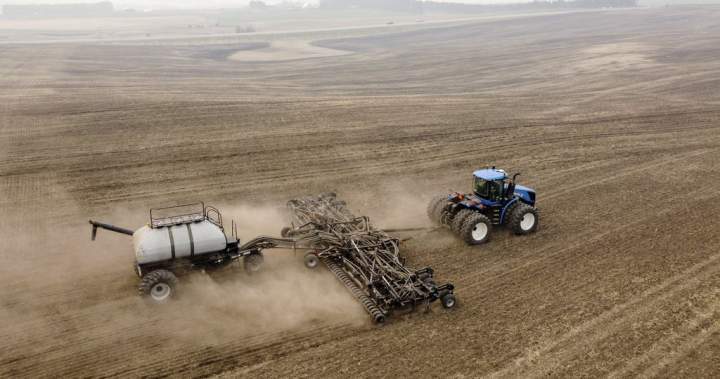China on Tuesday announced preliminary anti-dumping duties on Canadian canola imports, a fresh escalation in the year-long trade dispute that began with Ottawa’s imposition of tariffs on Chinese electric vehicle imports last August.
The provisional rate will be set at 75.8 per cent, effective from Thursday, the Ministry of Commerce said in a statement.
ICE November canola futures fell four per cent to a three-month low after the announcement.
China, the world’s largest importer of canola – also known as rapeseed – sources nearly all of its supplies of the product from Canada. The steep duties would likely all but end imports if they are maintained.
“This is huge. Who will pay a 75 per cent deposit to bring Canadian canola to China? It is like telling Canada that we don’t need your canola, thank you very much,” said one Singapore-based oilseed trader.
China’s Ministry of Commerce said on Tuesday an anti-dumping probe launched in September 2024 had found Canada’s agricultural sector and particularly the canola industry had benefited from “substantial” government subsidies and preferential policies.
China has until September, when the investigation formally ends, to make a final decision on the duties, though it has the option of extending that deadline by six months. A final ruling could result in a different rate, or overturn Tuesday’s decision.
Get daily National news
Get the day’s top news, political, economic, and current affairs headlines, delivered to your inbox once a day.
The decision marks a shift from the conciliatory tone struck in June when China’s Premier Li Qiang said there were no deep-seated conflicts of interest between the countries during a phone call with Canadian Prime Minister Mark Carney.
“This move… will put additional pressure on Canada’s government to sort through trade frictions with China,” said Trivium China agriculture analyst Even Rogers Pay.
The Canadian embassy in Beijing did not respond to a request for comment.
Separately, China also launched an anti-dumping investigation into Canadian pea starch and imposed provisional duties on imports of halogenated butyl rubber, according to ministry statements.
Replacing millions of tons of Canadian canola is likely to be difficult at short notice, say analysts.
China primarily uses imported canola to make animal feed for its aquaculture sector. A separate duty on Canadian canola meal imports in March has already put these supplies at risk.
The move provides an opportunity for Australia, which looks set to regain access to the Chinese market with a few test cargoes this year after a years-long freeze in the trade, Pay said.
Australia, the second-largest canola exporter, has been shut out of the Chinese market since 2020 due mainly to Chinese rules to stop the spread of fungal plant disease.
However, even if Australian imports increase, “fully replacing Canadian canola will be very difficult unless import demand drops sharply,” said Donatas Jankauskas, an analyst with commodity data firm CM Navigator.
China adds ‘additional pressure’ with new tariffs on Canadian canola


